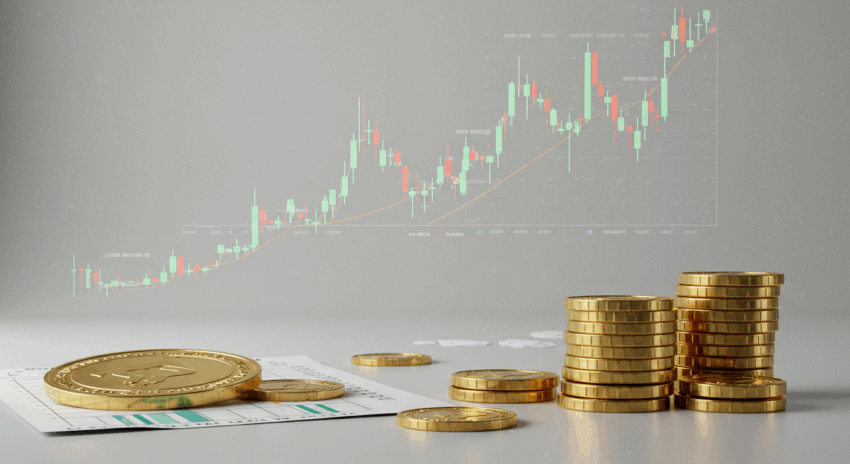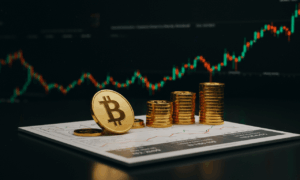Spot Ether ETFs are on the verge of becoming a reality, a landmark development that could fundamentally change how you think about and access cryptocurrency investments. In the fast-paced world of digital assets, a major barrier for many potential investors has been the complexity and perceived risk of buying and holding cryptocurrencies directly. However, recent groundbreaking news from regulators is set to tear down that wall, potentially making investing in Ethereum as simple as buying a share of your favorite company. This article will deconstruct what just happened, explain what it means for your financial toolkit, and explore the opportunities and risks of this new frontier in investment products.
Whether you’re a seasoned investor or just starting to explore ways to grow your money, understanding this shift is crucial. We’ll break down everything you need to know about this new, accessible way to gain exposure to the world’s second-largest cryptocurrency.
First, What Exactly is an ETF?
Before we dive into the specifics of the news, let’s clarify the central financial product at play here: the Exchange-Traded Fund (ETF). Imagine a basket of groceries. This basket might contain a mix of fruits, vegetables, and grains. Instead of buying each item individually, you can buy the entire basket in one single transaction. An ETF works in a very similar way, but for investments.
An ETF is a type of investment fund that holds a collection of assets, such as stocks, bonds, or commodities. The fund is then divided into shares, which you can buy and sell on a stock exchange throughout the day, just like an individual stock. This offers two key advantages:
- Diversification: By buying a single ETF share, you instantly gain exposure to all the assets held within the fund, spreading out your risk.
- Simplicity: ETFs are traded on familiar platforms like your brokerage account, making them highly accessible to the average investor.
This structure is the key to understanding why the recent news is such a game-changer for cryptocurrency.
The Big News: The SEC Greenlights a Crucial Step for Spot Ether ETFs
The major development that has the financial world buzzing is a pivotal decision by the U.S. Securities and Exchange Commission (SEC), the primary regulator of financial markets. The SEC has officially approved key rule change filings (known as 19b-4 forms) from major exchanges that wish to list and trade several spot Ethereum ETFs. This is a monumental step that was, until very recently, considered unlikely by many market analysts.
While this isn’t the final, final approval—the individual ETF issuers still need their registration statements (S-1 forms) to be declared effective—it is the most significant hurdle cleared. The 19b-4 approval signals a major shift in the regulator’s stance and strongly indicates that these products will be available to the public soon. Major financial players are behind these applications, ready to launch their own versions of a spot Ether ETF once the final green light is given.
This follows the successful launch of spot Bitcoin ETFs earlier in the year, which saw billions of dollars in investment flow into those products, demonstrating a massive appetite for a regulated, straightforward way to invest in digital assets.

Why This Matters: Bridging Traditional Finance and Crypto
So, why is this more than just technical regulatory news? The approval of spot Ether ETFs has profound implications for both investors and the financial industry as a whole. It represents a significant maturing of the digital asset market.
1. Unprecedented Accessibility
Currently, investing in Ethereum typically requires signing up for a specialized cryptocurrency exchange, setting up a digital wallet, and navigating the complexities of securing your own digital assets. This process can be intimidating and presents a technical barrier for many. A spot Ether ETF completely removes this friction. You will be able to buy and sell shares of the ETF through the same traditional brokerage account you use for stocks and other financial products. This ease of access could open the door to a much broader base of investors, including those who have been curious about crypto but hesitant to jump in.
2. Mainstream Validation and Regulatory Oversight
The SEC’s approval provides a powerful stamp of legitimacy for Ethereum as an investable asset. For years, cryptocurrencies have operated in a gray area of regulation. An ETF listed on a major stock exchange like the NYSE or Nasdaq must adhere to strict regulatory standards. This provides a layer of investor protection and transparency that is not always present in the direct crypto market. It signals that regulators see Ethereum as a significant component of the modern financial landscape.
3. A Clearer Path to Diversification
Many modern investment theories emphasize the importance of diversification—not putting all your eggs in one basket. For investors looking to add alternative assets to their portfolios, a spot Ether ETF offers a regulated and straightforward option. Rather than being a niche, hard-to-access investment, it becomes another potential tool for portfolio construction, sitting alongside stocks, bonds, and commodities. It’s a new way to think about your overall savings and investment strategy.
Understanding the Risks and Considerations
While the excitement is palpable, it is crucial to approach this new investment opportunity with a clear understanding of the risks. This is not a recommendation to invest, but rather an educational overview to help you make informed decisions.
- Extreme Volatility: First and foremost, cryptocurrencies like Ethereum are highly volatile. Their prices can experience dramatic swings in very short periods. You must be prepared for the possibility of significant losses and should only invest what you are comfortable losing.
- Regulatory Headwinds: While this approval is a positive step, the global regulatory framework for digital assets is still being written. Future regulations could impact the price and viability of cryptocurrencies.
- It’s Not the Same as Holding Ether: Owning shares of an ETF is not the same as owning Ether directly. You won’t be able to use the ETF shares to interact with decentralized applications (dApps) on the Ethereum network. You are simply gaining economic exposure to its price movements.
Before considering any investment in a spot Ether ETF, it is vital to assess your personal risk tolerance, your investment timeline, and your overall financial goals. These products may be suitable for the speculative portion of a well-diversified portfolio, but they are not a guaranteed path to wealth.
Conclusion: A New Era for Digital Asset Investing
The impending launch of spot Ether ETFs is a landmark event, signaling a new phase of integration between digital assets and the traditional financial system. It democratizes access to Ethereum, offering a simplified, regulated, and familiar vehicle for millions of investors. While the inherent volatility and risks of cryptocurrency remain, this development provides a powerful new tool for those looking to diversify their portfolios. As always, diligent research and a clear understanding of your own financial situation are the keys to navigating this exciting new landscape.
Frequently Asked Questions (FAQ)
When can I actually buy a spot Ether ETF?
While the crucial 19b-4 approvals have been granted, there is one final step. The SEC must review and declare the S-1 registration statements from the individual fund issuers (like BlackRock, Fidelity, etc.) as “effective.” This process can take anywhere from a few weeks to a few months. Most market analysts anticipate that trading could begin sometime in the summer of 2024, but there is no official, guaranteed date yet.
Is investing in a spot Ether ETF safer than buying Ether on a crypto exchange?
It’s safer in some ways, but not in others. The investment risk—the risk that the price of Ethereum will fall—is exactly the same. However, a spot ETF mitigates certain operational risks. You don’t have to worry about managing your own private keys or the risk of a crypto exchange getting hacked or going bankrupt. The ETF is held within the highly regulated traditional financial system, which offers certain structural protections. However, you must still be fully aware of the market volatility inherent in the asset itself.





